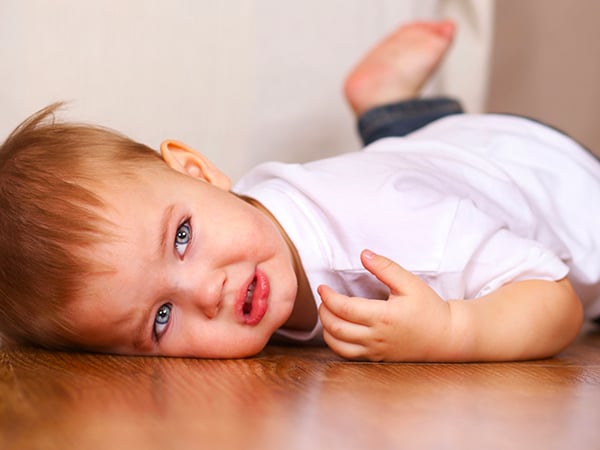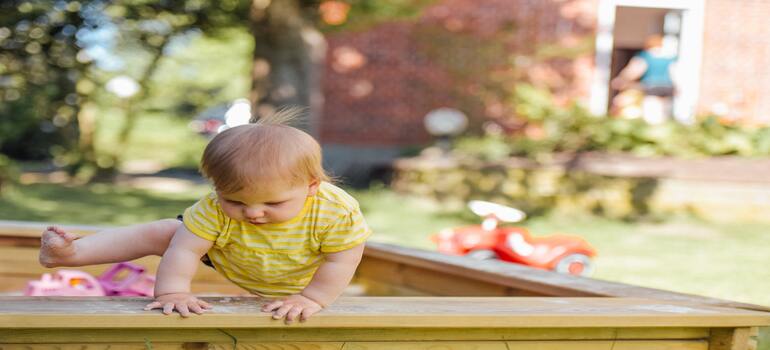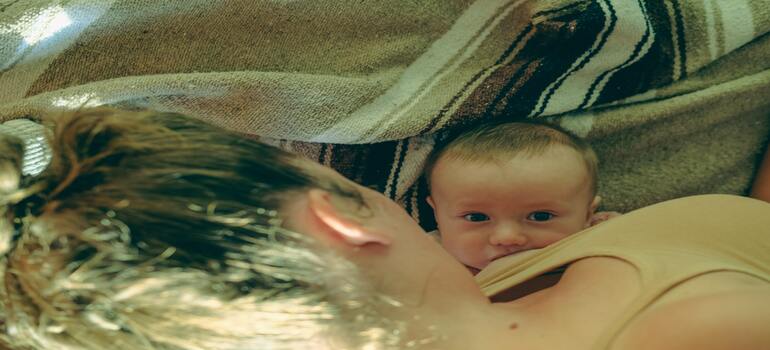What to do when your child's behaviour regresses?

- March 1, 2021
- MKB Team
All of us have off days in life when nothing seems to click. You don’t feel like going to work and you’d rather laze around doing nothing. There’s that irritability and you don’t know why. This is the kind of regression that prompts you to take a break from work. You feel depleted and drained of all energy and need to recharge your batteries as your brain refuses to function clearly.
This kind of regression is similar in kids too although they don’t seem to bounce back as easily as adults. But with a little parental help and guidance, this can be dealt with. Kids are unaware as to what’s happening as they become stressed easily without knowing how and why. When the pattern or behaviour regresses over weeks, and in worst cases, months, that’s when the situation becomes worrying as you can’t put an end to the regressive behaviour.
The distinct pattern in this kind of behaviour is that it isn’t a part of the daily norm that is regular for your child. Just like you step back to earlier modes of behaviour to beat stress, like listening to music or reading a book or whatever de-stresses you, your kid goes back to an earlier developmental phase to beat the stress. A five year old might start sucking his thumb for example.
Here are some common stressors that induce regressive behaviour
that will help you identify the problem.
Physical stressors like lack of sleep can make kids cranky and regress behaviourally. A second physical stressor is an illness coming on, the first sign of which is regressive behaviour. The third is a change of diet or bad diet like periodic unhealthy eating.
Social stressors involve fights with other kids, being bullied, trauma, and a feeling of isolation or being left out. These cause regressive behaviour as kids can become irritable, sad, oversensitive, hyper or distracted when hit socially.
Changes in environment or routine like moving house, changing schools or the birth of a new child may bring about regression as not all kids are flexible to new situations. This phase normally sees a child aloof or withdrawn initially, then sad and angry, and lastly as new friends are made and the new surroundings become familiar, everything becomes normal. When there is the birth of a new child, and the elder is between 3 to 4 years, the chances of regression are the highest. This is because when the second child arrives, the first is still in the developmental stage, which is challenged and interrupted by
the arrival of the newcomer.
As children transcend developmental phases, the anxiety associated with it may cause regression. For example, during early adolescence, when the child is aged 12 to 14, the onslaught of sudden hormones at the puberty stage and the shift to their peer group from the parents causes fluctuating emotions. The child experiences varying emotions like ecstasy, sadness and moodiness.
If there is domestic discord and the warring parents are always stressed out, the kids inherit that stress. Remember that when you are under stress, your kids turn reactive too.
Regressive behaviour is also caused when kids are under basic stress from too much homework or school projects, extra-curricular activities, sports etc. This basically involves any activity with overload and responsibility without adequate breaks or rest.
How to battle regression in kids?
Instead of being reactive, be proactive. Find out the root cause behind the regressive behaviour. Why is your child emotionally overwhelmed? It won’t be easy but work like a detective to find out, exploring all the possibilities.
Control what you can by regulating sleep hours and monitoring non-constructive activities. Check if your child is eating too much sugar or junk and replace with protein and carbs.
Cut out the video games and opt for outdoor sports to get that much needed exercise. Any kind of play, including pretend play is great to beat stress and regressive behaviour. When in doubt, play!
Talk to your partner and reduce any marital stress. Seek professional help if need be. Do not fight before the kid. Ensure that both of you spend time with the kid and with each other.
Do not rule out individual counselling if you feel you are a part of the problem.
If you are the parent of a teen, be a good listener. Display interest rather than being a critic to bond better. Spend quality time together religiously.
Sometimes, just soothing your child helps. Let your child cuddle with you on the couch or just watch a movie together. Sometimes, children just crave for that extra attention and need to be reassured. Don’t we all?
What’s your POA for beating regression in your child? Write in to us!
Q&A
You ask and we answer!
What happens when a child regresses?
Jubit Kaur, Chandigarh.
Children who were previously hitting appropriate developmental milestones may suddenly slow down in learning or be more forgetful of what they previously learned. Children who were showing rapid language acquisition may suddenly slow down or start using “baby talk.”
What causes regression in child development?
Dorothy Rao, Dubai.
Regression is typical in normal childhood, and can be caused by stress, frustration, or a traumatic event. Children usually manifest regressive behaviour to communicate their distress. Addressing the underlying unmet need in the child usually corrects the regressive behaviour.
Is there a 3 year old regression?
Anne Corner, Singapore.
Just as in all the sleep regressions you have experienced before, the 3 year sleep regression happens because of major developmental growth in your childs brain and body.
Is age regression a mental disorder?
Shilpa Shroff, Mumbai.
Age regression may be a symptom of a mental health condition, such as dissociative identity disorder or PTSD. Age regression can also be used a therapeutic technique, though it's a controversial practice. A mental health professional can help you return to a time in your life when you were abused or experienced trauma.
Published by
MKB Team
200 Articles
MomsKnowBest is a fast-growing vibrant community of moms, for moms, by moms. Motherhood is complex fun, fulfilling, grueling, exhausting and very complex. There’s no handbook to it. And let’s face it – moms are put...
Read MoreShare with your friends!
Leave a Comment
Trending Post
Myth Buster: Having iron tablets makes your child...
Busting Top 10 Pregnancy Myths about having Iron Tablets
One of the Top 10 pregnancy myths is that...
Health Benefits of Pomelo For Moms To-Be & Kids
During pregnancy, women need proper nutrition to support their health as well as the growth of the...



